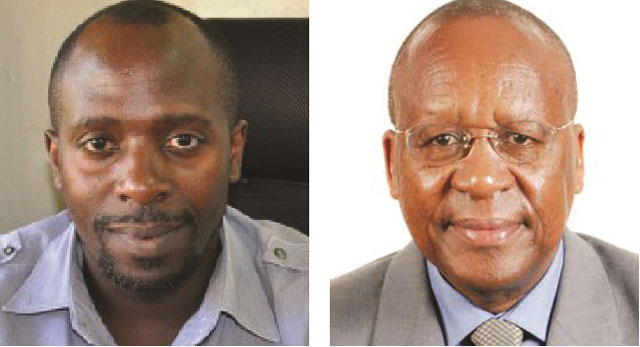
URA data shows that while AGR was the exporter in all cases, the gold came into Uganda through several names including Goetz himself, a one Jamal Nasir, a company called AGOR DMCC and another called GOETZ GOLD LLC. Both AGOR and GOETZ GOLD have links with Goetz.
Sources say the IGG and FIA investigations, which are on-going, were partly sparked by some of these discrepancies.
When The Independent raised these issues with AGR, the company said in an email response that there is someone behind the allegations whose intention is to damage AGR’s reputation. The company had earlier, in a press statement, claimed that person was Taremwa.
“AGR is an industry providing services and not involved in the selling, buying or trading of precious metals,” the company noted.
“AGR do have a Mineral Dealer’s License as it is essential for various business purposes and it is one of the requirements AGR is submitting whenever there is an export.
AGR also noted it has mechanisms in place aimed at avoiding trading in conflict gold.
“Any customer has to fulfill our KYC (Know Your Customer) procedures by providing relevant information and their company legal documents,” AGR noted, “AGR is doing due diligence of its suppliers in the same way as other foreign / international refineries are doing.”
The company also noted that they have been competing with huge smuggling networks “as we are promoting the legal framework and legitimate supply chain thus smugglers are devastated on AGR’s success and doing everything to suppress AGR”.
“The question is; why is Goetz refusing to declare his operations and cooperate with these institutions according to the law if he has nothing to hide?” wondered Don Binyina, the Executive Director, African Centre for Mineral Policy (ACEMP).
Questionable exports
Binyina, who is also the Chairman of the Audit Committee of the International Conference of the Great Lakes Region Protocol (ICGLR) against the Illegal Exploitation of Natural Resources, added that the ICGLR has long had concerns over the source of the gold refined at AGR.
Binyina said that because ACEMP founded and convenes the National Assembly of Artisanal and Small Scale Miners (ASMs), which brings all ASMs across the country, they have an idea of how much gold is produced in Uganda.
“ASMs are the largest producers of gold in Uganda,” he said, “but these guys produce in grams. If you combined all their sites in Uganda, they cannot produce ten kilos of gold a month. That is why the source of the gold coming out of AGR cannot be Uganda.”
Therefore, Binyina says, since the evidence shows that AGR is a gold exporter, they have a duty to declare the source of this gold.
“Otherwise,” Binyina warned, “with all these fingers pointing at AGR, there is a real risk of turning Uganda into a transit route for illicit gold, which can threaten peace and stability in the region.”
There are also concerns that given the past record, where Uganda is accused of plundering Congo, it is not hard to foresee Uganda slammed with international sanctions if these issues are not dealt with.
GW in its June report also noted that President Museveni, without following due process, directly influences the award of deals to investors, who sometimes turn out to be fakes, evade taxes, and abuse human rights and the environment.
For instance, President Museveni asked DGSM officials to offer a 25-year copper mining concession deal for the copper deposits worth $ 26 billion at Kilembe Mines to a Chinese consortium– Tibet Industry Company Ltd without following due process.
Years later, it emerged that the same company that was supposed to invest $175m into the facility, create over 3000 jobs and pay government millions in taxes and royalties, was incapable.
But because they bribed their way to the deal, proper due diligence was not done, it later emerged that they don’t have capacity, they are unable to pay even $1 million a year in government loyalties and later on invest the funds required to revive the facility.
As a result, government has to go back to square one and get new investors four years later. The story of Kilembe is not very different from that of the Sukulu project. Last year, IGG conducted an investigation which revealed that the award of the exploration licence by DGSM to Dongsong Energy Group, another Chinese company, was fraudulent. Rather than allow the IGG to use her independence and take due action, President Museveni intervened, blamed her for disrupting the project and directed her to leave Dongsong alone.
Years later, the Sukuru project is yet to deliver the expected dividend and has been caught up in endless dispute with locals over compensation.
Critics also say because of such, investors are disregarding institutions and violating laws with impunity because they are assured of Museveni’s protection.
Inside sources have told the Independent that officials from the FIA, IGG and DPP are working joint on the Goetz/AGR case and despite Museveni’s protection, they agreed at a mid-December meeting that the DPP goes ahead and prosecutes AGR specifically for declining to provide a copy of their operating licence and register with the FIA. The IGG, meanwhile, is carrying out a broader investigation of Goetz/AGR operations.
 The Independent Uganda: You get the Truth we Pay the Price
The Independent Uganda: You get the Truth we Pay the Price




Let Museveni fight the M23 in the name of fighting ADF. That way we will keep the gold flowing while keeping Rwanda off. Its called geopolitical economics.
It could land Uganda in hot soup internationally. Blood minerals is dirtier than cocaine.